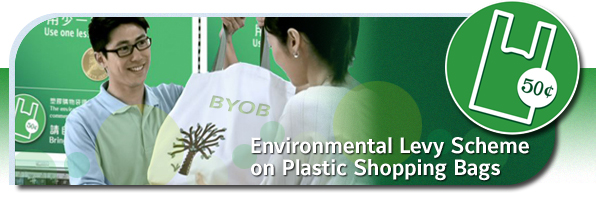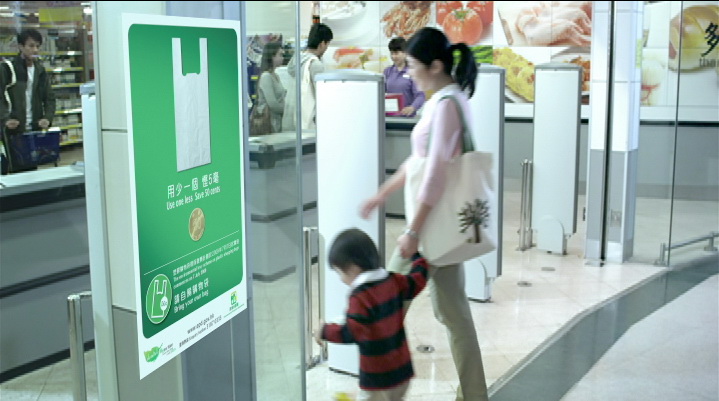Enforcement Statistics (2009)
| |
|
Enforcement Activities and Statistics under the Product Eco-responsibility Ordinance 2009
 |
|
The Environmental Levy Scheme on Plastic Shopping Bags (the Levy Scheme) was successfully launched on 7 July 2009. As the first mandatory producer responsibility scheme introduced under the Product Eco-responsibility Ordinance (PERO), the Levy Scheme introduces a direct economic incentive to encourage the public to switch to reusable shopping bags.
Under the Levy Scheme, prescribed retailers are no longer allowed to give out free plastic shopping bags; and their customers must pay an environmental levy of 50 cents for each plastic shopping bag they ask for. Having registered under the Levy Scheme, registered retailers are required to submit a return on a quarterly basis setting out the number of plastic shopping bags distributed to customers from their retail outlets, and pay to the Government the total amount of levies collected for the quarter. |
|
Prescribed Retailer
A person who carries on a retail business at:
(i) 5 or more qualified retail outlets in Hong Kong; or
(ii) at least one qualified retail outlet in Hong Kong that has a retail floor area of not less than 200 square metres.
A "qualified retail outlet" is one that offers all of the following categories of goods for sale: (a) any food or drink; (b) any medicine or first-aid item; and (c) any personal hygiene or beauty product.
The person who carries on a retail business that fulfills either item (i) or (ii) above is a "prescribed retailer", and shall register under the Levy Scheme.
|
|
|
|
|
|
|

|
Since its implementation in July 2009, the Levy Scheme has yielded positive results with more and more people now taking their own reusable shopping bags. According to the feedback from some green groups and the retail trade, the number of plastic shopping bags distributed to customers by registered retailers has been reduced significantly by 80% to 90%. With no doubt, the Levy Scheme could not be implemented successfully without the support of the wider community and participation of the retail trade. To further promote “BYOB” as part of Hong Kong’s green culture, we are committed to sustain our efforts in public education and publicity while continuing our liaison with the retail trade to promote and facilitate compliance to the Levy Scheme.
|
|
|
Registration
Under the PERO, a prescribed retailer shall register his qualified retail outlet as registered retail outlet, otherwise no plastic shopping bag (PSB) shall be provided directly or indirectly to a customer from his qualified retail outlet. Since the implementation of the Levy Scheme, the total number of registered retailers has maintained at 41, who jointly operate about 3 000 qualified retail outlets that are subject to levy. These primarily include chain or large supermarkets, convenience stores, personal health and beauty stores, department stores, drug stores, etc (see Figure 1).
|
|
See Data
|
|
Return and Payment
In accordance with the PERO, registered retailers are required to submit a quarterly return setting out the number of PSBs provided to customers from their retail outlets, and pay to the Government the amount of levy collected for such bags. For the two quarterly returns covered for the period from 7 July 2009 to 31 December 2009, some 26 million PSBs were distributed by the registered retailers with the corresponding levy income of some $13 million. Comparing the two quarterly returns, the total number of PSBs distributed in the second quarter (some12.8 million PSBs with an associated levy revenue of about $6.4 million) is slightly lower by about 5% than that of the first quarter (some 13.5 million PSBs with an associated levy revenue of about $6.7 million) (see Figure 2) .
|
|
See Data
|
|
|
   |
|